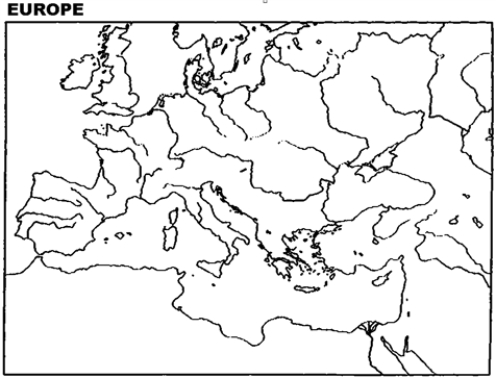Exam 10: Intellectual Transformation: the Scientific Revolution and the Age of Enlightenment
Which of the following ended the medieval division of the cosmos into higher and lower worlds with different laws operating in each realm?
D
All of the following are true of the Encyclopedia except
E
Please define the following key terms. Show Who? What? Where? When? Why Important?
-Aristotelian-Ptolemaic System
The Aristotelian-Ptolemaic System was a geocentric model of the universe that was developed by the ancient Greek philosopher Aristotle and later refined by the astronomer Ptolemy.
Who? - The system was developed by Aristotle and later refined by Ptolemy.
What? - It was a geocentric model of the universe, meaning it placed the Earth at the center and had the celestial bodies, such as the sun, moon, and planets, orbiting around it.
Where? - The system was widely accepted and taught in ancient Greece and later in the Roman Empire.
When? - The Aristotelian-Ptolemaic System was developed in the 4th century BCE by Aristotle and further refined in the 2nd century CE by Ptolemy.
Why Important? - The system was important because it provided a framework for understanding the movements of the celestial bodies and was widely accepted for over a thousand years. It also influenced the development of astronomy and cosmology in the Western world. However, it was eventually replaced by the heliocentric model proposed by Copernicus in the 16th century.
The philosophes' concern for liberty did not lead them to embrace democracy with the notable exception of
Please define the following key terms. Show Who? What? Where? When? Why Important?
-Galileo
Please define the following key terms. Show Who? What? Where? When? Why Important?
-Thomas Hobbes
Please define the following key terms. Show Who? What? Where? When? Why Important?
-Platonic ideas
Please use this outline map of Europe to answer the question(s).
 -On a blank map of Europe, locate the following areas where there was considerable Enlightenment disputation: Paris, Berlin, Moscow, Budapest, London, and the Hague.
-On a blank map of Europe, locate the following areas where there was considerable Enlightenment disputation: Paris, Berlin, Moscow, Budapest, London, and the Hague.
____ argued that passages from the Bible had no authority in questions involving nature.
Which of the following statements about Mary Wollstonecraft is correct?
Please define the following key terms. Show Who? What? Where? When? Why Important?
-enlightened despotism
Please define the following key terms. Show Who? What? Where? When? Why Important?
-Inductive Approach
Please define the following key terms. Show Who? What? Where? When? Why Important?
-universal gravitation
What was the general thinking of the philosophes in regard to gender?
Please define the following key terms. Show Who? What? Where? When? Why Important?
-Deism
Filters
- Essay(0)
- Multiple Choice(0)
- Short Answer(0)
- True False(0)
- Matching(0)